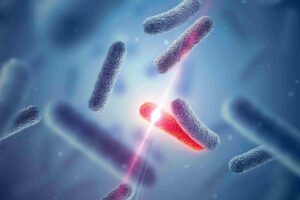Table of Contents
ToggleWhat is already known on this topic
Several studies have suggested that the gut microbiota is associated with neurodevelopmental conditions such as autism. However, these studies provided contrasting results on the gut microbiota composition of people with autism.
What this research adds
Researchers analyzed the bacterial proteins present in stool samples from children with autism, their parents, and neurotypical children. In autistic children, proteins associated with Clostridia and with carbohydrate metabolism were up-regulated, whereas proteins associated with Bacteroidia were down-regulated. About 30 down-regulated proteins were more expressed in children with an intelligence quotient (IQ) lower than 70 compared to children with an IQ higher than 70. Most of these proteins were related to Firmicutes bacteria.
Conclusions
The findings are in line with the idea that children with autism have a different gut microbial composition and functionality compared to neurotypical children.
Several studies have suggested that the gut microbiota is associated with neurodevelopmental conditions such as autism. A new study provides additional insights into the gut microbiota composition of autistic people.
The study is the first to profile the gut microbiota of autistic children, their relatives, and neurotypical children using a metaproteomic approach. Its findings, published in the Journal of Proteomics, are in line with the idea that children with autism have a different gut microbial composition and functionality compared to controls.
Previous studies have analyzed bacterial DNA in stool samples from autistic children to characterize their gut microbial profiles. But these studies provided contrasting results on the gut microbiota composition of people with autism.
Lorenza Putignani at the Bambino Gesù Children’s Hospital in Rome and her colleagues used a metaproteomic approach to investigate microbial genes and their functions, as well as the composition of the gut microbial communities in children with autism.
Microbial differences
The researchers collected stool samples from 10 families, each of them consisting of one child with autism, two parents, and one neurotypical sibling, when present.
In many cases, the gut microbiota of autistic children was different from that of the rest of their family. In particular, autistic children had lower levels of Bacteroides compared to siblings and controls, and some autistic children had increased levels of Alistipes compared to their family members.
The Bacteroidetes/Firmicutes ratio was higher in controls than in people with autism, and Oscillibacter, Clostridium, and Bacteroides levels were higher in people with autism than in their siblings.
In autistic children, proteins associated with Clostridia and with carbohydrate metabolism were up-regulated, whereas proteins associated with Bacteroidia were down-regulated.
Corroborating findings
Next, the researchers compared autistic children with an intelligence quotient (IQ) lower than 70 and those with an IQ higher than 70. About 30 down-regulated proteins were more expressed in children with an IQ lower than 70. Most of these proteins were related to Firmicutes bacteria.
Blautia bacteria were found in networks with Alistipes and Bifidobacterium in children with an IQ higher than 70, and with Clostridium and Roseburia in those with an IQ lower than 70.
“Although the restricted number of patients did not allow us to enforce our observation with the best statistical power, we however found some consistency with previous investigations carried out through targeted metagenomics or metabolomics,” the authors say.
In particular, the finding that proteins related to Clostridia were overrepresented in the autism group and those associated with Bacteroidia were overrepresented in the control group is consistent with previous results, the researchers note.
Future studies, they add, will benefit from increasing the number of families studied and identifying bacterial metabolites that could be related to the gut microbiota alterations observed in people with autism.











